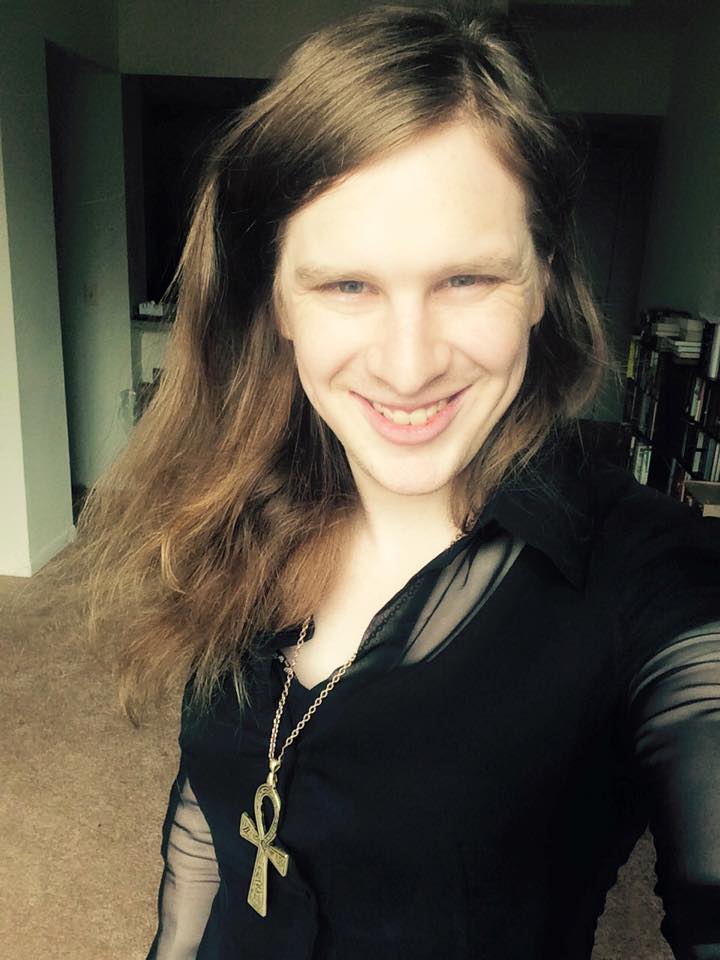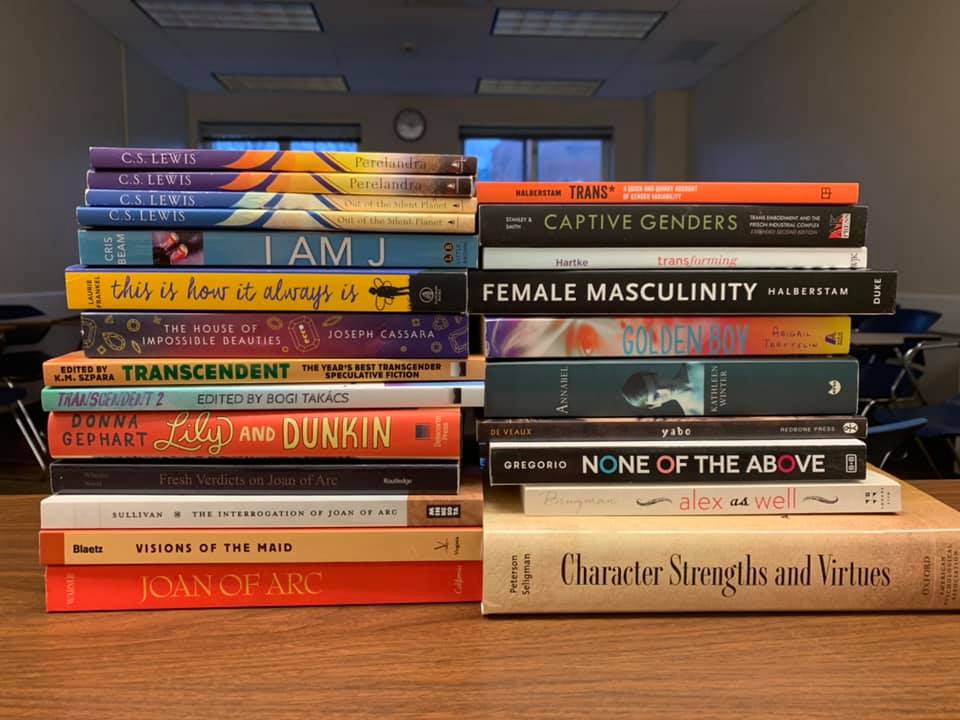By Gabrielle Bychowski
Sitting at my desk, I set down my copy of A Room of One’s Own, looked over at the shelves of my library and asked myself: where is the transgender amidst all this literature?
I think about Virginia Woolf’s shelf where she saw no plays by women, where she had to search hard for women and the fiction they write, fiction written about women, or texts where women, their fiction and fiction about them are all entangled together.
How can I constitute such a shelf of trans literature? What books could make up a shelf of the theories that bind transgender and literature together? I ask this question not just because Woolf asked hers, but because her query gives language for a question already inside me.

Like the dysphoria that made my own lack of a shelf unlivable and made the striving for a shelf of my own a necessity, I feel such a dysphoria living also in my library. This dysphoric need for trans literature is as critical and consequential as the dysphoria felt in the chest of many a trans person.
I see this need among the living, among individual trans people who are compelled to narrate and re-narrate to their families, friends, jobs, doctors who recommend therapists, therapists who might sign their verifying letters, lawyers who might translate those letters into name and gender marker changes, judges who approve those name and gender marker changes, the Department of Motor Vehicles who makes those changes to one’s license, the Department of Social Security who makes those changes to one’s Social Security card, the federal government who makes those changes to one’s passport, the therapist again to recommend an endocrinologist or surgeon, the endocrinologist, the surgeon, the pharmacist, the insurance company to cover all these expenses, and then and then and then more.
I also see this in all those who never got the chance to tell this story or when they did tell, they then had their story untold: the Leelah Alcorns and all those trans people who are buried under the dead-names, names that killed them and now mark as dead the trans life that could have been.
I see this in all the trans lives that still might be if only they knew how to tell their story, if only their families and schools and doctors and churches could hear and understand their story. I see how often those transgender futures are denied like so much of our transgender past. Consider: a 2018 study found that between 38 to 44 percent of trans youth will attempt suicide at some point in their lives. I see one in three transgender futures disappearing without anyone to tell their story.
That is why I call the need for trans literature dysphoric. Because dysphoria is about grief for what has been denied in the past, dissatisfaction with the present, and hope for the future.
Virginia Woolf concluded that to make her desired shelf of women come into being, women needed five hundred pounds a year and a room of one’s own, with a lock on it. As a writer and mother myself, I can affirm the good sense of this. But as a trans woman who feels the dysphoric need for a shelf of our own, I would add a few more conditions.
First, we need to identify and liberate ourselves from some of the toxic tropes in which transgender has been defined within cisgender literature, or else we may never resurrect the trans figures and stories buried among other people’s books and stories.
We also need to understand the stories we already tell and have already told for centuries, or else we may never know what trans literature looks like in order to recognize it on a shelf. Lastly, we will need to examine what it means to read and write while transgender, or else trans lives will continue to be reduced to and by the theories of cisgender literary analysis. All this we need. (Also, the stable paycheck and office with a lock, which comes with job security, would also be nice. Please and thank you.)
With these conditions met, only then might we have a shelf of our own. May this shelf grow bigger, book by book, as we slowly try to make the library that is to come, even close to the library that might have been. Perhaps one day we will find balance between the told and untold stories. Perhaps one day the living stories will outnumber the dead.
Gabrielle Bychowski is an Anisfield-Wolf SAGES Fellow at Case Western Reserve University, teaching courses on transgender and intersex history, disability culture, racism, and medieval literature. This post originally appeared on her blog, Things Transform.
